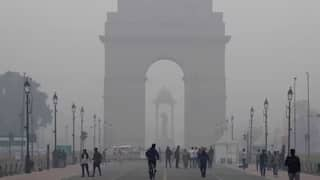'Stellar Festival Of Lights': NASA Says 'Happy Diwali’ With A Photo From Milky Way Galaxy
The photograph shared by NASA is that of a globular cluster, a densely-packed collection of colourful stars close to the heart of the Milky Way Galaxy

New Delhi: NASA wished everyone a Happy Diwali early Friday by sharing an image captured by its Hubble Space Telescope.
The photograph shared by the space agency is that of a globular cluster, a densely-packed collection of colourful stars close to the heart of the Milky Way Galaxy, to wish everyone who celebrates the festival of lights.
NASA dubbed the globular cluster as a ”stellar festival of lights”.
“Sparkles Happy #Diwali to all who celebrate! This stellar festival of lights, called a globular cluster, was captured by @NASAHubble. It contains a densely-packed collection of colorful stars close to the heart of the Milky Way”, NASA posted.
✨ Happy #Diwali to all who celebrate! This stellar festival of lights, called a globular cluster, was captured by @NASAHubble. It contains a densely-packed collection of colorful stars close to the heart of the Milky Way: https://t.co/0JGYRhvl4x pic.twitter.com/g4MLMxNkkK
— NASA (@NASA) November 4, 2021
NASA's post took the netizens by a storm. A Twitter user wrote: "This is my favourite Diwali greeting...Fireworks dim in the glow of the stars."
Another user wrote: "No Cracker can match it !"
The power of Universe !
— Nitin Tayade🧢 (@TayadeG) November 5, 2021
No Cracker can match it !
This is the Best way to celebrate Diwali 🪔!
Original & close to the Mother Nature!#Diwali #HappyDeepavali https://t.co/pGOxxgdNcj
The 'Stellar Festival Of Lights' Captured By Hubble
Hubble Space Telescope's Wide Field Camera 3 and Advanced Camera for Surveys captured the sparkling starfield.
The starfield contains the globular cluster ESO 520-21, also known as Palomar 6.
It is a densely-packed collection of stars, and lies close to the center of the Milky Way Galaxy.
The globular cluster lies in the constellation Ophiuchus, near the celestial equator. Some of the stars appear redder than they actually are, due to absorption of starlight by interstellar gas and dust.
Nonetheless, the picture is breathtaking, and a sight to behold.







































